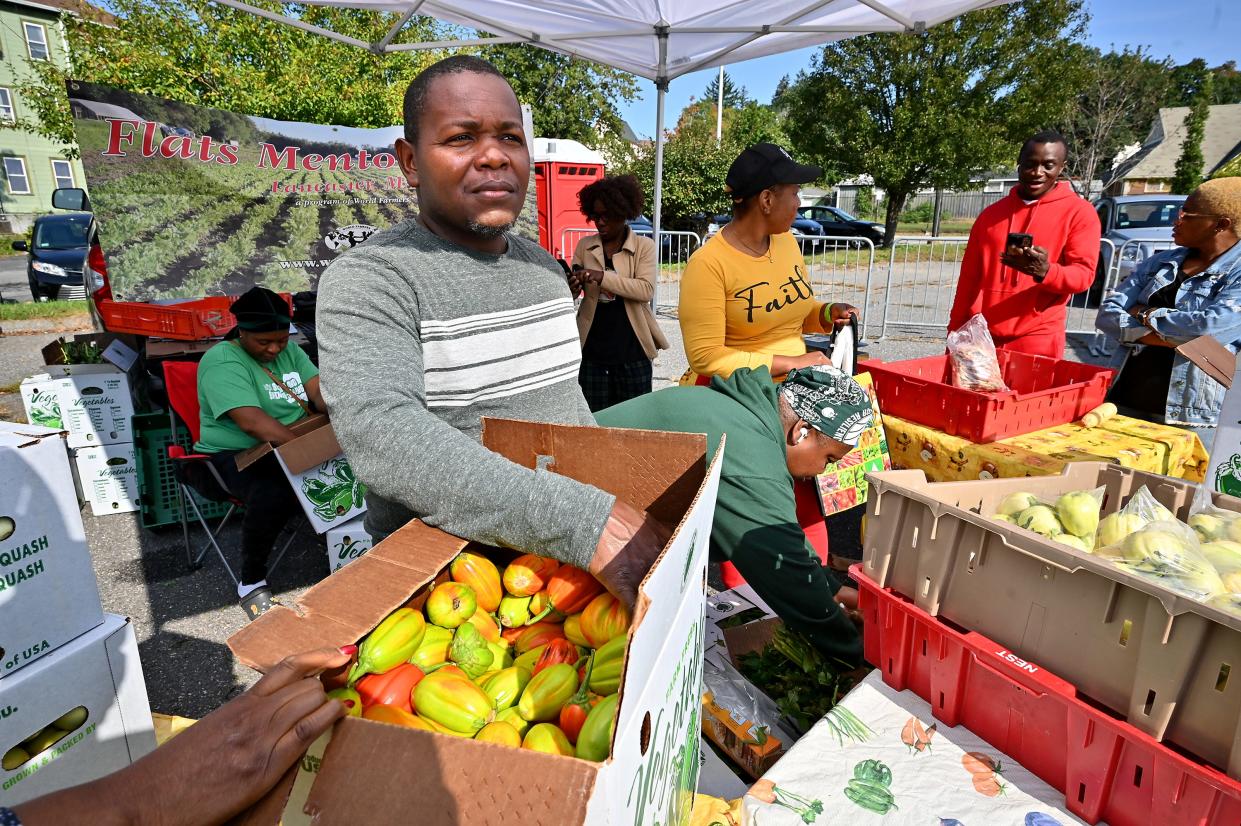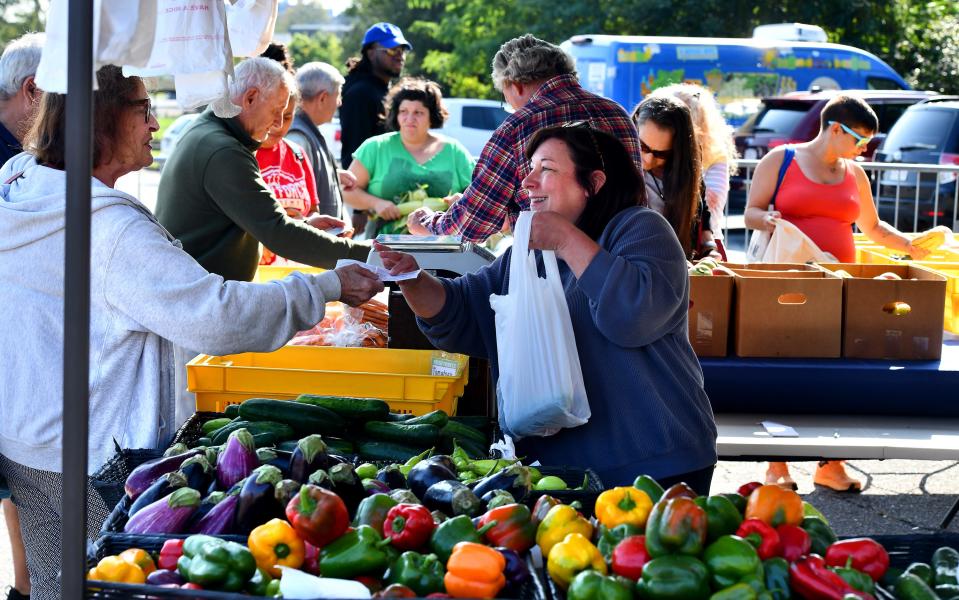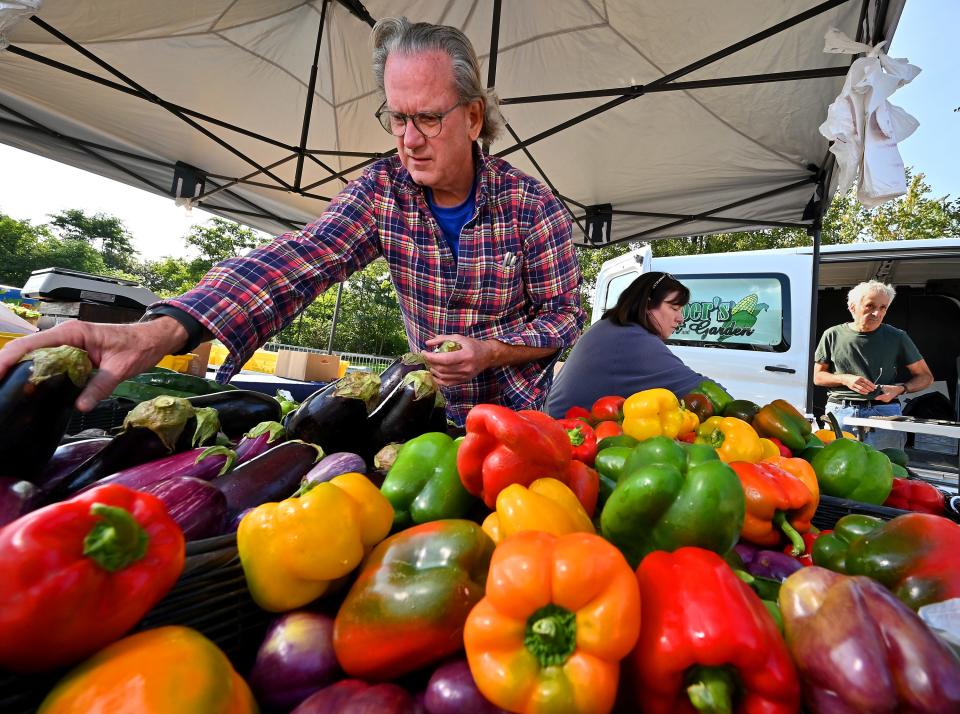Worcester County farmers, markets grapple with loss caused by flooding

WORCESTER - Lancaster farmer Barnabas Forndia has been struggling with how to deal with the recent flooding that left most of his crops at Juahkumbah Farms completely submerged.
This year's above-average rainfall has been tough on farmers, said Regional Environmental Council farmers market coordinator Ashley Carter. Inclement weather, with flooding and frost, have been consistent issues.
The Regional Environmental Council is a grassroots environmental justice organization that helps build sustainable communities in Worcester. The organization promotes accessibility to food for Worcester's most food insecure communities.
While the weather has greatly impacted farmers' crops, it's also caused markets like the Beaver Brook Farmers Market to close on days with heavy rain.
"(The farmers) have had less days at market so they have less time to actually sell their produce," Carter said. "In general, certain crops also haven't been doing super well. It's a little different for each farmer."
Forndia said his main sellers annually tend to be his onions, scallions and hot peppers.
"I just didn't have them this year," Forndia said. "It's tough. Almost 80 to 90% of what I bring (to market) I can't because of the weather."
Relying on farmers markets
Most of Forndia's income comes from his farming, selling his goods at local farmers markets or to wholesalers. Some of the crops Forndia sells at the Beaver Brook Farmers Market, people cannot find at any other markets, he said.
"You cannot recover from that," Forndia said. "The season is pretty short, it's started getting cold already. Most of the crops are planned to be planted in warmer weather."

Forndia said they have one greenhouse but it is also submerged.
The flooding of his fields left him hopeless, Forndia said, but he will not give up.
"I got passion for it," Forndia said. "It's what we love to do. When you aren't producing and eating your own stuff, it's like something is taken away from you. We've got to keep trying."
The impact of these farms flooding goes beyond financial. While it has greatly affected farmers like Forndia financially, the lack of fresh produce at farmers markets directly impacts their consumers.
"We're building that base so that customers still want to come and have the variety to shop," Carter said. "We're trying to make that diverse, comfortable shopping experience for customers."
SNAP benefits has a healthy incentive program on their card, which puts money back onto their EBT cards when they use SNAP to buy healthy, local fruits and vegetables from healthy incentive program farm vendors. The lack of fresh produce due to the weather trickles down and affects those who are in need of affordable, healthy food.
Harper's Farm
Harper's Farm in Lancaster has struggled with the same issue as Forndia this year. According to a Facebook post, fields have been more flooded than dry since May.
David Harper, owner of Harper's Farm, said he has never seen anything like this in all his years of farming. About 80% of his fields are flooded, he said.
"You can kind of plan for a storm coming but this was just out of nowhere," Harper said.

Harper's greenhouse was saved and after the rain damaged most of his crops, he was able to plant fast-growing crops like lettuce. Financially, Harper said he has lost "over $100,000."
"We haven't had a stretch for five days without rain since Memorial Day. We had flooding in July and a freeze in May," Harper said. "It's been one thing after another all year."
Lots of fall vegetables like potatoes and onions are not harvestable, Harper said, the vegetables are rotting away in the fields because of the amount of water that is still there.
As a farmer, Harper said, he started wondering how much more of this he can take.
"It's been a really discouraging year," Harper said. "We feel bad for our customers in Worcester because a lot of them count on us every Monday and Friday."
Last Monday, the Beaver Brook Farmers Market had to close for the day because many of their farmers were still in recovery from the rain.
"This year, in particular, it's been rough to try to get your hopes up and use energy to get to market and then have not that many customers show up," Carter said. "And because of the rain, farmers have been delayed in general."
Carter said moving forward, farmers may need to reassess the infrastructure on their farms.
"You can't get around a huge rain event," Carter said. "A lot of people don't have the variety of land that you need to overcome this sort of thing."
In August, Gov. Maura Healey signed a supplemental budget that made $20 million available to support Massachusetts farms impacted by severe weather this year. Massachusetts United Way partnered with the Healey-Driscoll administration to create a fund intended to support farmers and their families.
This article originally appeared on Telegram & Gazette: Farmer's markets see impact of recent flooding

